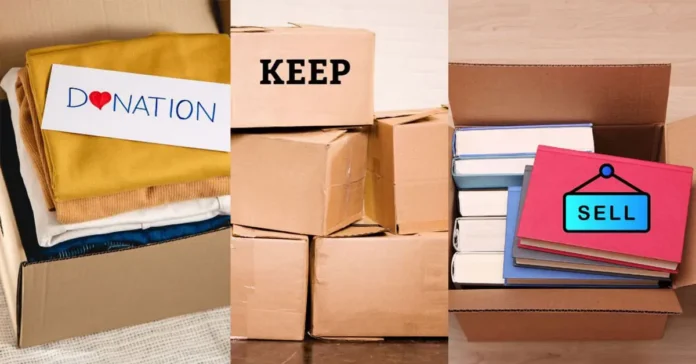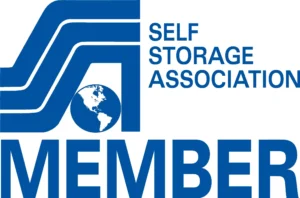As retirement nears, it’s common to feel that your home no longer fits your lifestyle. Empty rooms and unused spaces indicate the need for downsizing. This involves decluttering and streamlining possessions to match your current needs. Proper planning is crucial, including considering self-storage options for items you want to keep but don’t use daily.
Renovation may be necessary to optimize your space, and organizing home storage or box storage can simplify the process. Downsizing isn’t just about moving to a smaller home; it’s about creating a living environment that suits your retirement lifestyle.
How to Make Planning for Retirement?
Evaluate your home’s space utilization and identify areas that are no longer essential. Identify areas that have become redundant or are no longer essential for your lifestyle. This includes rooms that are rarely used, such as empty bedrooms or a formal dining area that sees little use. Assessing your current situation involves looking at practical aspects like maintenance costs and utility expenses associated with maintaining a larger home. Consider how much time and effort goes into upkeep and whether downsizing could lead to more manageable maintenance tasks.
Planning for Retirement – Setting Clear Goals
Define your retirement goals to align with the downsizing process. Determine what you aim to achieve through decluttering and downsizing, such as creating a more functional and organized living space. Consider your ideal living situation post-downsizing, whether it’s a smaller home, an apartment, or even a retirement community.
Understand how downsizing will contribute to your overall lifestyle goals, including reducing stress, simplifying daily routines, and potentially saving costs on home storage solutions like self-storage or box storage. This clarity in goals will guide your decisions throughout the downsizing journey and ensure that the process is aligned with your long-term vision for a more comfortable and efficient living environment.
Planning Ahead for Retirement
To ensure a successful downsizing experience, it’s important to plan ahead and start early, ideally at least a year in advance. This timeframe allows you to tackle each step systematically without feeling overwhelmed. Begin by creating a detailed timeline that outlines key tasks such as decluttering your home, listing it for sale, and planning for relocation.
Financial considerations play a significant role in downsizing. Include all downsizing-related expenses in your budget, such as moving costs, storage fees for items you wish to keep but won’t immediately need, and expenses for staging your home to attract potential buyers.
Analyze your current financial situation, including any outstanding mortgages or loans that need to be settled before downsizing. Understanding these financial aspects early on helps you make informed decisions and avoid unexpected financial burdens during the downsizing process.
Avoid Common Pitfalls for Retirement Planning
Whether you’re moving to a smaller home or simply decluttering to streamline your lifestyle, self-storage can be a valuable asset in your retirement planning journey. Here’s how incorporating self-storage can benefit you during this transition:
- Space Optimization: With self-storage, you can optimize your living space by storing seasonal items, sentimental belongings, or infrequently used possessions. This allows you to create a more organized and functional environment.
- Preserving Memories: Many retirees have cherished possessions that hold sentimental value, such as family heirlooms, antiques, or memorabilia. Self-storage provides a secure and climate-controlled space to preserve these items.
- Flexibility and Convenience: Self-storage offers flexibility and convenience, allowing you to access your stored items whenever needed. Whether you’re downsizing temporarily or long-term, self-storage facilities provide ease of access and peace of mind knowing your belongings are safe.
- Supporting Lifestyle Changes: Retirement often brings lifestyle changes, such as travel, hobbies, or spending more time with family. Self-storage enables you to adapt to these changes by storing items that may not fit in your current living space but are essential for your desired lifestyle.
- Financial Efficiency: Renting a self-storage unit can be a cost-effective solution compared to maintaining a larger home solely for storage purposes. By downsizing your living space and utilizing self-storage, you can save on mortgage, utility, and maintenance costs, freeing up funds for other retirement expenses.
- Transition Assistance: Whether you’re relocating to a new city or downsizing within your current neighborhood, self-storage provides transitional support. You can store belongings temporarily during the moving process or long-term as you adjust to your new living arrangements.
Final Words
In conclusion, integrating self-storage into your retirement planning can significantly enhance your transition to a more streamlined and fulfilling lifestyle. By leveraging the benefits of self-storage, such as space optimization, preservation of memories, flexibility, and financial efficiency, you can effectively downsize your living space without sacrificing the things that matter most to you.
Self-storage facilities offer a convenient and secure solution for storing sentimental belongings, seasonal items, and valuables that may not fit in your downsized home. This flexibility enables you to adapt to lifestyle changes, pursue new hobbies, and create a clutter-free environment that promotes well-being and organization.
Moreover, utilizing self-storage can lead to financial savings by reducing housing costs associated with maintaining a larger home solely for storage purposes. This financial efficiency allows you to allocate resources towards other retirement expenses, such as travel, leisure activities, or enhancing your quality of life. Embrace the opportunities that self-storage offers, and enjoy a simplified, stress-free retirement experience tailored to your unique preferences and aspirations.
FAQs
A1: Retirement planning involves setting financial goals and creating a strategy to ensure a comfortable and secure retirement.
A2: It’s never too early to start. The earlier you begin, the more time your investments have to grow.
A3: The amount varies based on your lifestyle and goals. A financial advisor can help determine a personalized estimate.
A4: Options include 401(k) plans, IRAs, annuities, stocks, bonds, and real estate, among others.
A5: Utilize tax-advantaged accounts like Roth IRAs and consider tax-efficient investment strategies.
A6: Start now! Even small contributions can make a difference over time.
A7: Consider healthcare costs and explore options like Medicare and long-term care insurance.
A8: Social Security provides a supplemental income stream, but it may not cover all expenses.
A9: Plan a sustainable withdrawal strategy and regularly review and adjust your investments.
A10: Yes, a financial advisor can provide personalized guidance and help you navigate complex retirement decisions.







